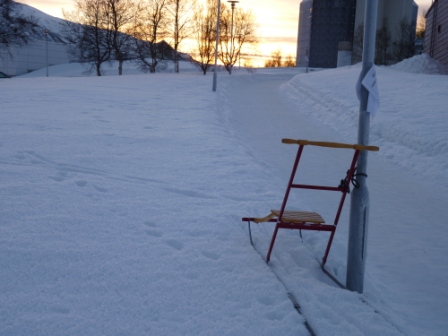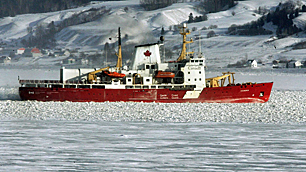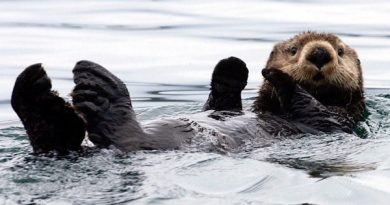Ice-Blog: Eco-group questions Iceland oil
Back in January, China’s state-owned oil company CNOOC obtained an Arctic exploration licence for the remote Dreki area, 125 miles off the north coast of Iceland.
Iceland has very close relations with Beijing. When I interviewed the Foreign Minister Gunnar Bragi Sveinsson at an event in Tromso earlier this year, he told me:
“We have a very good cooperation with China. We hope our Free Trade Agreement will be fully implemented in the summer. China is a very big player in the world economy. They are showing interest in the Arctic, interest in western Europe, and we treat them like anybody else in the world. As long as they play by Icelandic rules, Icelandic law, we don’t worry. I see opportunities in working with China, no threats”.
I was interested to come across a short item by the news agency AFP about a group that sees Arctic development a little differently; the Iceland Nature Conservation Association. Their opposition has nothing to do with the fact that China is investing in the region, but with the basic fossil fuels-climate paradox. The agency quotes the chairman, Arni Finnsson:
“Iceland should not bet on oil at a time when it is doubtful that humanity can reach its (greenhouse gas) goals.”

Apart from the climate implications, Finnsson says oil production in the area envisaged by CNOOC along with Icelandic firm Eykon Energy and Norway’s state-owned Petoro is unlikely to be cost-efficient. The cost factor is one analysts say will play the key role in determining whether offshore oil exploration in the Arctic will be viable, as discussed on various occasions here on the Ice Blog.
Iceland is still recovering from the financial crisis of 2008-2009 and hopes to follow in neighbouring Norway’s footsteps and build a lucrative oil industry. ”That is the hope,” Thorarinn Sveinn Arnarson, who heads the hydrocarbon licensing department at Iceland’s national energy authority, told AFP. “If something is found that is economically viable there would be tax benefits and of course all the other things, job creation and technical capacity like we’ve seen in Norway and in the Faroe Islands.”
But experts warn that this vision could be some way off if it ever materialises. Dag Claes, a leading oil and gas expert at the University of Oslo, stresses the remoteness of the area. He also draws attention to the problems of developing a suitable infrastructure for an oil industry in this part of the world, a problem I wrote about here on the Blog recently. You might also like to check out the article: Are we prepared for a catastrophe in the Arctic?




